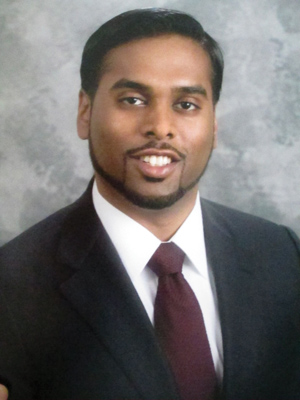Think you have what it takes to complete a joint degree program?
Canadian Lawyer 4Students finds out what’s involved from these joint-program medal winners who have taken the time to ponder the following questions:
1. Why did you choose the joint program?
2. How many years did it take to complete the course?
3. How did you juggle school and life demands?
4. What advice would you give law students on how to excel in a joint program?
5. What was your favourite course?
6. What do you do in your spare time?
 Ken Prichard
Ken Prichard, Gerald W. Schwartz Gold Medal, JD/MBA graduate, University of Toronto
1) There were several reasons, but what it really came down to was a desire to learn as much as possible. I wasn’t sure what I wanted to do after graduating and had an interest in both law and business, so I thought I couldn’t go wrong by studying both. I ended up learning more than I had imagined, and each program gave me a different set of tools and a unique way of looking at the world.
2) Four years.
3) The key is recognizing that each program emphasizes different qualities and moves at a different speed. The business school moves faster and demands more constant attention, but is less busy at exam time. The law school is very back-end loaded, with long research papers and 100-per-cent finals. Developing a schedule with a mix of the different course types balances the workload.
4) Never miss a class, even if you don’t have time to do your reading or prepare for class. Listening to the prof is the most efficient way to learn, and adds colour to the readings. You’ll also learn what the core issues are, which will help you focus your attention when studying. I also think it’s important to make sure you integrate yourself fully into both faculties (instead of focusing on one or the other), because you’ll learn as much from your classmates as you will from the course work.
5) Competition law, because it blends business, legal, and policy issues.
6) I try to stay active, spend time outdoors, and see friends and family as much as possible.
 Hamza Dawood
Hamza Dawood, Dean’s Gold Key Award, JD/MBA graduate, Osgoode Hall Law School
1) My route into the JD/MBA program offered by Osgoode Hall Law School and the Schulich School of Business was a bit unconventional because I decided to enter the program after completing my first year at Osgoode as a JD student. Having entered law school, convinced that I was going to be a criminal prosecutor, I realized after first year that business law was what I really wanted to do and an MBA was what I needed to improve my knowledge and understanding of the language and logic of business, especially given my liberal arts background. When I realized that I could secure a world-class MBA along with a JD through the joint program for a fraction of the time and tuition that it would otherwise take, my decision to enrol in the program was made.
2) When I enrolled in the Osgoode-Schulich program, one could only complete the degree in four years. The program can now be completed in either three or four years.
3) Juggling school and life was tough but solid organization and time-management skills got me through, along with a lot of late nights and hard work. I found that my athletic and social activities were a very important outlet that helped me blow off steam and maintain my focus when the demands of school got especially onerous. Above all, a positive attitude and a strong desire to maintain balance in my life proved most valuable in helping me to succeed in the face of the intense demands of life and school.
4) Take classes that are interesting to you with professors you admire so learning is a pleasure rather than a chore. Try to establish relationships with upper-year student mentors who can provide school-specific insights regarding ideal course and professor selection. Participate in extracurricular activities relevant to your academic and professional interests so you can meet like-minded peers and apply the knowledge you have learned in the classroom in the real world — the results will often inspire you!
5) I enjoyed virtually all of the courses I took, but if I had to choose one I would pick the final year JD/MBA capstone seminar led by a senior professor and various professionals in careers at the intersection of law and business who lectured on issues in their fields, while providing a practical perspective concerning career and professional development. The lessons I learned in this course helped me better understand the day-to-day issues with which business people are concerned, while also equipping me with a better sense of how the worlds of law and business interact outside the classroom. To the extent that this seminar forced me to think about and apply the knowledge that I had learned throughout my legal and business studies in concrete, real-world terms, it helped me develop a more sophisticated and mature outlook as I prepare to begin my career as a corporate lawyer on Bay Street and thus it was my favourite course.
6) When I have spare time, I enjoy playing sports and travelling and engaging in entrepreneurship and service.
 Michael Comartin
Michael Comartin, Medal in Law, MIR/JD graduate, Queen’s University
1) Based on prior work experience, I knew I had an interest in labour and employment law, but I did not have any formal background in industrial relations or human resources. I was also torn between law school and graduate work in history. A trusted professor recommended I look into the joint master’s of industrial relations/JD program, which is unique to Queen’s. After a few meetings with the MIR program co-ordinator, I was sold on the program. I felt it would give me a foundation in the IR and HR issues that I would end up dealing with in practice.
2) It took four years to complete the master’s and JD, but this included a work placement that serves as the equivalent of articling for MIR/JD students. I completed my placement prior to graduating from the JD. So the program took no longer than the usual three years of law school plus the articling year. Recently, the program rules changed and students now complete the master’s and the JD in three years, with articling to follow graduation.
3) I wish I could say balancing work and life came easily to me, but it was quite the opposite. That said, my experience might be of use to students starting law school. In my first year, I had to work hard just to keep up. It wasn’t a question of juggling school and life, as all I had time for was school. I gave up a part-time job and focused on school. I wanted to succeed, and worked hard, but despite that, I barely kept up. About halfway through the first semester of my second year, things finally clicked for me. During my first year I learned all the technical skills students learn in 1L, but I hadn’t put the pieces together to form a coherent approach to studying law. Helpful professors taught me effective techniques for expressing legal conclusions in a clear and persuasive manner. I learned new ways to think and write, and these tools made law school a lot easier and more enjoyable for me. Perhaps the most important change I made was learning to focus on factual application of case law rather than on abstract “rules.” I had initially focused on learning “rules” rather than on understanding the flexible principles that an adjudicator would apply to a given set of facts. Learning to think and write like a lawyer proved to be far more important for my work/life balance than anything else.
4) First, you should be familiar with the requirements of your program. I would suggest speaking to upper-year joint-degree students, as well as the administration of each school. Second, be prepared for the additional work your program requires. Law school is challenging on its own, so you need to be aware of the impact of the second degree. Be willing to adapt to a new way of thinking.
5) My favourite course was advanced constitutional law, a seminar taught by Justice David Stratas. The course covered a wide variety of topics from equality rights to federalism to search and seizure, and students had a choice of three cases to moot. Since the subject matter was very broad, it attracted students with varying interests and perspectives, which made the seminar discussions incredibly diverse. And Justice Stratas’ lectures on effective legal writing were invaluable.
6) Usually one of three things: reading, watching TV (particularly History Television), or playing cards. I’m also involved with the new Centre for Law in the Contemporary Workplace at Queen’s.

 Ken Prichard, Gerald W. Schwartz Gold Medal, JD/MBA graduate, University of Toronto
Ken Prichard, Gerald W. Schwartz Gold Medal, JD/MBA graduate, University of Toronto Hamza Dawood, Dean’s Gold Key Award, JD/MBA graduate, Osgoode Hall Law School
Hamza Dawood, Dean’s Gold Key Award, JD/MBA graduate, Osgoode Hall Law School Michael Comartin, Medal in Law, MIR/JD graduate, Queen’s University
Michael Comartin, Medal in Law, MIR/JD graduate, Queen’s University